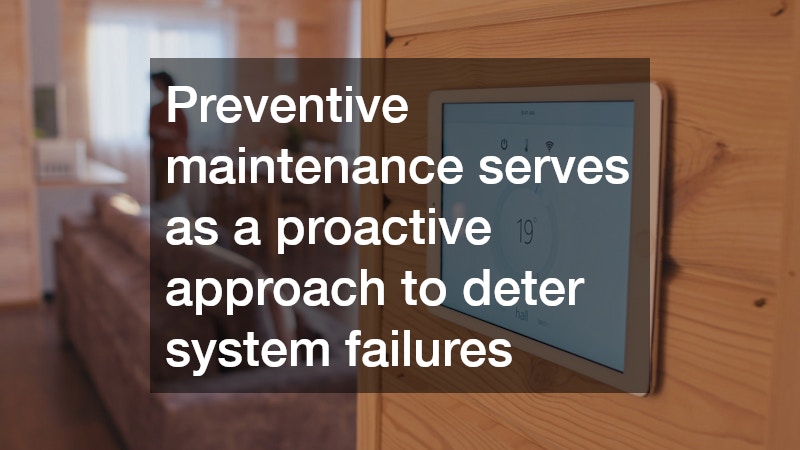In today’s world, air conditioning systems play a vital role in enhancing our comfort, particularly during the sweltering summer months. Proper air conditioning services and maintenance ensure these systems remain efficient and reliable over time. Understanding the importance of regular maintenance can lead to prolonged system longevity and optimal indoor air quality for your home.
Why Regular Air Conditioning Maintenance is Essential
Regular maintenance is crucial in preventing unexpected and costly breakdowns. By identifying and addressing issues early on, homeowners can avoid major repairs and extend the lifespan of their air conditioning units. In essence, a well-maintained air conditioner not only improves air quality but also secures your peace of mind.
Preventive maintenance serves as a proactive approach to deter system failures. It allows homeowners to anticipate and resolve potential disruptions before they become significant problems. By maintaining your air conditioner, you protect your investment and ensure your family’s comfort during heatwaves.
Scheduled maintenance also aligns with manufacturer warranty requirements. Regular servicing substantiates your commitment to care and can prevent warranty claims from being denied due to negligence. Comprehensive care impacts both immediate performance and the long-term resilience of your air conditioner.
Maintaining your air conditioning unit directly influences its energy efficiency. An efficiently running system consumes less energy, leading to reduced utility bills for homeowners. Routine checks and cleanings ensure the system operates at optimal levels, reducing the carbon footprint of your household.
Inefficient air conditioners struggle to maintain desired temperature settings, causing increased energy consumption. Regular servicing, including filter changes and coil cleaning, helps alleviate this issue. The result is a more environmentally-friendly operation and noticeable savings on energy costs.
It’s important to note that even a seemingly minor issue, like a clogged filter, can significantly impact efficiency. Addressing these minor concerns through regular maintenance can lead to substantial reductions in energy use. A well-maintained air conditioner is more reliable and kinder to the environment.
How Often Should I Service My Air Conditioner?
Manufacturers commonly recommend servicing air conditioners at least once a year. Annual maintenance checks typically take place before peak seasons, ideally in spring, to prepare for heightened usage during summer. Keeping this regular schedule helps ensure that the system can operate efficiently when it’s needed most.
Following a structured maintenance schedule helps identify small issues before they escalate. Doing so guarantees that your air conditioner remains reliable and capable of providing desired comfort. Additionally, tenants and homeowners benefit from safeguarding their equipment investments with timely check-ups.
Industry standards suggest different maintenance needs based on air conditioner types and capacities. It is advisable to consult your specific unit’s manual and adhere to the manufacturer’s guidelines to maintain warranty validity. Consulting professionals for routine inspections can be an effective and straightforward strategy.
Several factors can affect how frequently maintenance is needed, including climate conditions. Air conditioners in hotter regions or areas with high humidity might require more frequent assessments due to workload and environmental demands. Additionally, homes with higher surrounding dust or pollen may need special consideration.
Usage patterns also significantly impact maintenance schedules. Systems that operate consistently throughout the year require more frequent check-ups. Conversely, those used seasonally may endure less strain but still benefit from annual servicing before extensive use.
System type and age can influence maintenance requirements as well. Older models might require closer monitoring to ensure peak performance, while newer units with advanced technology could have different needs. Consulting with a professional can help navigate these variables for tailored maintenance planning.
What Does Air Conditioning Service Include?
During a service visit, technicians perform thorough inspections of air conditioning systems. They assess components like coils, filters, and drain lines for build-up or blockages affecting performance. Cleaning these parts helps maintain airflow and cooling efficiency.
Beyond performance benefits, regular cleaning prevents potential health hazards. Elements of the system that harbor dust or moisture contribute to mold growth, affecting indoor air quality. Consistent maintenance helps mitigate these risks and sustain healthy living conditions.
Technician inspections typically include visual checks and performance tests. Potential problems such as worn-out parts or leaks are identified and documented for repair. A detailed assessment of these aspects enables homeowners to make informed decisions about necessary equipment interventions.
Critical to air conditioning service is comprehensive component testing. Technicians evaluate parts stress levels, efficacy, and possible wear, ensuring replacements are made as needed. Early intervention prevents unexpected breakdowns and helps retain the system’s functionality.
Parts like capacitors, thermostats, and fans are inspected and, if needed, replaced to maintain optimal operations. Replacements are often cheaper than emergency repairs, highlighting the importance of regular service. Doing so minimizes unexpected downtimes and prevents significant disruptions in comfort.
The importance of testing components cannot be understated for reliability. Ensuring every element operates as intended aids in thwarting costly repercussions from component failure. Consistent assessments secure your peace of mind and preserve the health of your air conditioning unit.
Regular air conditioning service and maintenance are essential for optimal system performance and efficiency. Engaging in routine checks ensures indoor air quality and prolongs equipment life. Homeowners who prioritize maintenance experience fewer disruptions, enjoy energy savings, and maintain cleaner, healthier living environments.

